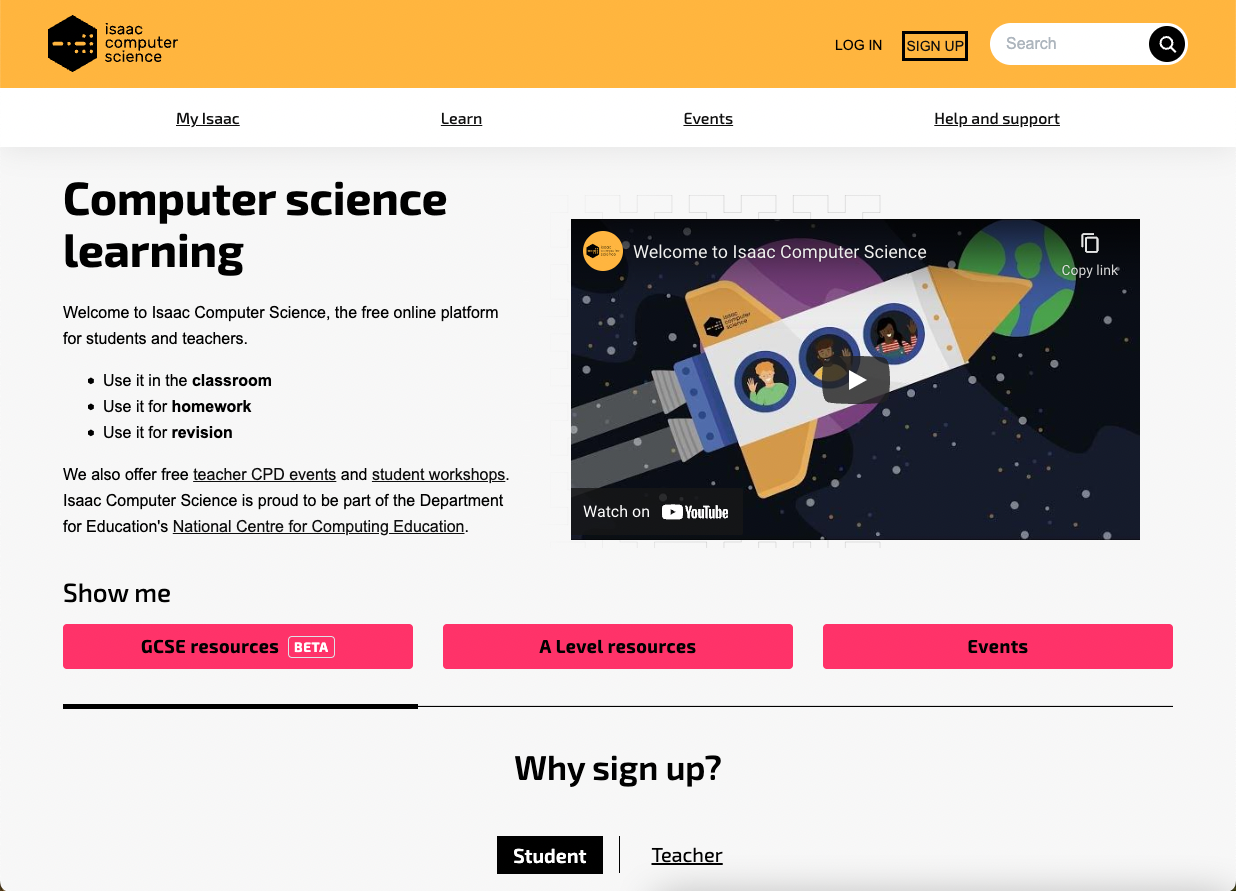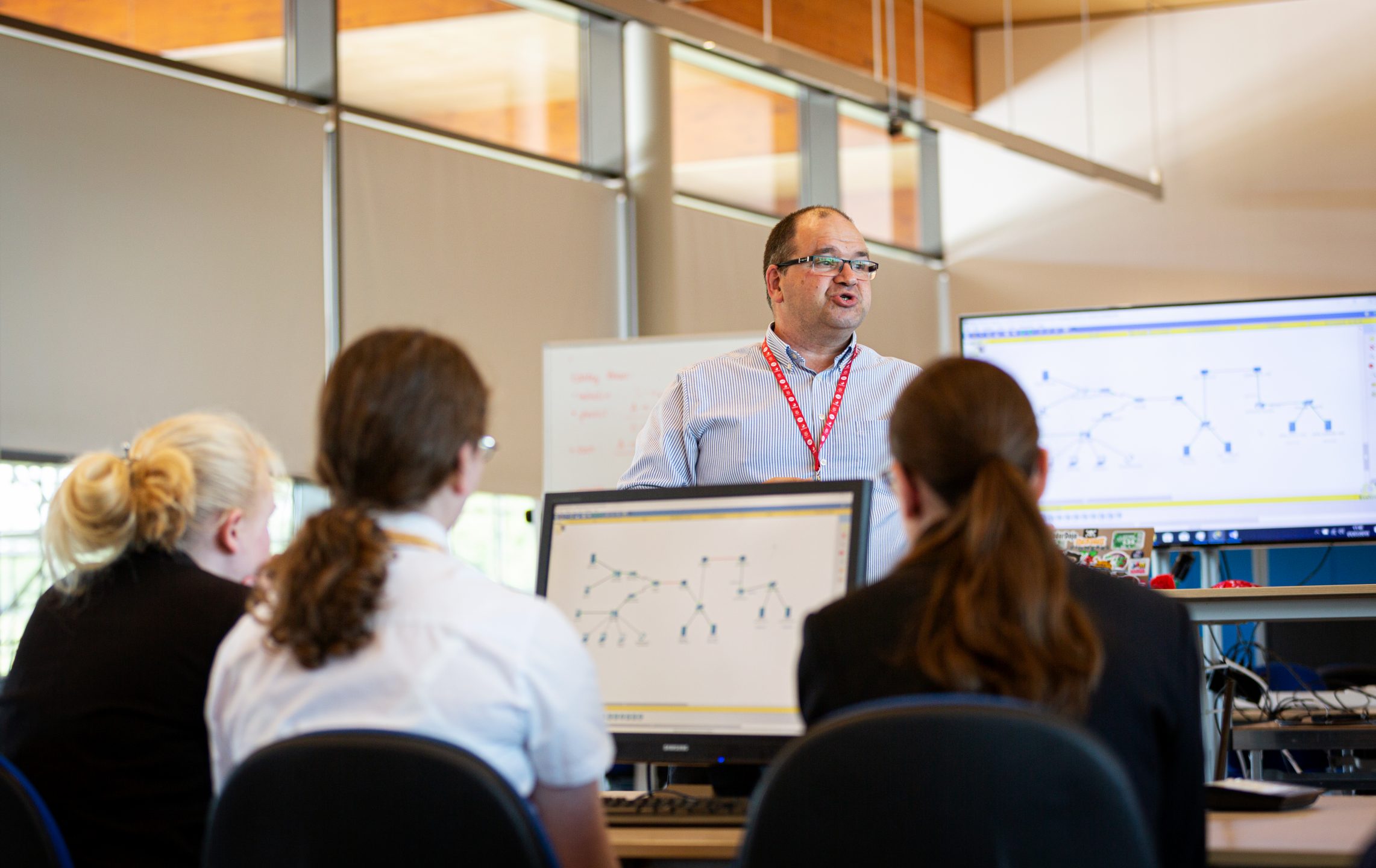The Isaac Computer Science platform was launched in 2019 as a free learning tool for educators and students in the upper secondary level (14-19 years). Developed with funding from the Department for Education in England, it is designed to be used by students and their teachers working towards GCSE and A Level Computer Science qualifications. Teachers can use the tool in their lessons by creating curated lesson activities, and students can use the platform for independent study, homework and exam preparation. The uptake of Isaac CS has been more than impressive, with over 3 million questions attempted to date. When analysing the user data and feedback, 64% of teachers said that Isaac CS helped them cut 3 hours of teacher workload a week, and nearly all teachers and students thought that the platform was easy to use and offered good quality questions and materials.

Working collaboratively
This project is a great example of the Raspberry Pi Foundation and the Department of Computer Science and Technology at the University of Cambridge working together. The Raspberry Pi Foundation team create content, including explanations, questions, videos, and activities, and also organise associated events for students and teachers, and the University of Cambridge team develop and maintain the platform.
We’re also interested in Isaac Computer Science from a research perspective, and the creation of the Research Centre gives us a great opportunity to find out more about the teaching and learning of computer science through Isaac CS data and engagement.

Research and Isaac Computer Science
We started to look at Isaac CS from the perspective of the design of the tool and wrote and presented a paper at the UKICER conference in September last year (Waite et al., 2021). This paper was a collaborative effort between the Raspberry Pi Foundation and the University of Cambridge. In this paper, we looked at how what is offered by the platform aligns to pedagogical models such as Ley’s Knowledge Appropriation model (Ley et al., 2020). Looking at the functionality through a pedagogical lens helps us to understand how it is used by teachers and students.
The paper also drew on research to analyse how the platform contributes to learning. A paper by Means, Bakia and Murphy in 2014 highlighted six reasons that teachers might use online resources:
- To broaden access
- To facilitate small group and 1:1 teaching
- To serve diverse needs
- To give more opportunity for practice
- To add variety and enhance engagement
- To support the learning of complex abstract ideas
It’s clear that Isaac CS serves an important role in broadening access to computer science and supporting teachers, but there is much still to be investigated. From the paper, and from our other work, we consider that there are a range of possible research questions that would help us understand computer science learning, including:
- How does the use of Isaac CS blend effectively with other online tools such as IDEs and LMSs?
- Which question types are most appropriate for computer science learning?
- What question types are most effective for learning?
- What can we learn from correct and incorrect answers to questions about the learning of computer science?
- … and many more
If you don’t have time to read the paper there is a video of our presentation, and our slides are also available.
What’s next?
We are now planning to conduct more research around the teaching and learning of computer science for students aged 14-18, using Isaac Computer Science to support this research. Plans are still at an early stage but we will use this site to update you on what we’re up to!
In the meantime, do head over to Isaac Computer Science – it’s a fantastic resource!
References
Ley, T., Maier, R., Thalmann, S., Waizenegger, L., Pata, K., & Ruiz-Calleja, A. (2020). A knowledge appropriation model to connect scaffolded learning and knowledge maturation in workplace learning settings. Vocations and Learning, 13(1), 91–112. https://doi.org/10.1007/s12186-019-09231-2
Means, B., Bakia, M., & Murphy, R. (2014). Learning online: What research tells us about whether, when and how. Routledge. https://doi.org/10.4324/9780203095959
Waite, J., Franceschini, A., Sentance, S., Patterson, M., & Sharkey, J. (2021, September). An online platform for teaching upper secondary school computer science. United Kingdom and Ireland Computing Education Research conference. Association for Computing Machinery, USA, Article 3, 1–7. https://doi.org/10.1145/3481282.3481287